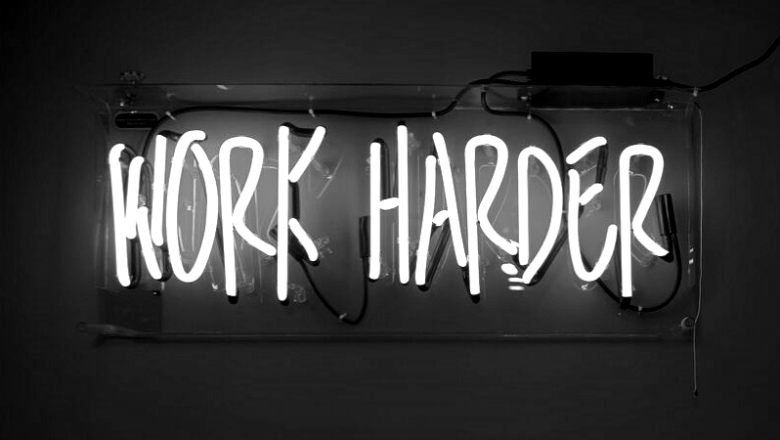The coronavirus pandemic has left countless members of the music community facing an uncertain future, as festivals and tours are canceled, studio sessions are called off and business travel is restricted. To help out music professionals and their loved ones navigate the crisis, Billboard compiled an extensive list of resources that we’re sharing to the Symphonic Blog as well. We’ll continue to update this list as time goes on.
National Resources for Musicians During the Coronavirus Pandemic
American Association of Independent Music
A2IM is surveying indie music companies about how the coronavirus pandemic is disrupting their businesses. The results will inform the organization’s discussions with the New York Mayor’s Office of Media and Entertainment, as well as its investigations of federal assistance programs.
American Federation of Musicians
The AFM is calling on Congress to provide immediate economic relief on behalf of musicians and other working people in the midst of the crisis, including expanded unemployment benefits and a moratorium on evictions, foreclosures and utility shut-offs. The organization has a resource page providing more information. Additionally, disabled AFM members can apply for financial aid through its longstanding Petrillo Memorial Fund.
American Guild of Musical Artists Relief Fund
Any AGMA member in good standing is invited to apply for financial assistance under the AGMA Relief Fund, which has temporarily doubled the amount of assistance available to those in need during the coronavirus pandemic.
Backline
Backline was established to connect music industry professionals and their families with mental health and wellness providers. In the wake of the coronavirus pandemic, the organization has established a virtual support group that plans to meet regularly via the Zoom app.
Blues Foundation HART Fund
The HART Fund helps underinsured or uninsured blues musicians and their families in financial need due to a range of health concerns.
COVID-19 Music Production Response Group
A Facebook group meant as an “open forum for constructive debate about the effects of COVID-19 on music production industry professionals,” according to administrators. Its nearly 4,000 members (as of March 18) are sharing news updates, suggested actions, job opportunities and other resources.
COVID-19 Mutual Aid Fund for LGBTQI+ BIPOC Folks (GoFundMe)
This more than $70,000 fund prioritizes LGBTQI+, non-binary, gender fluid and gender non-conforming people of color whose livelihoods have been affected by the coronavirus pandemic. The first round of funding closed on March 17, but organizers say they plan to continue to raise funds through mid-April.
Equal Sound Corona Relief Fund
This organization strives to break down traditional genre boundaries through events and advocacy, is inviting musicians who have lost income due to the pandemic to apply for funds. Applicants must provide proof they had a confirmed concert canceled over the coronavirus to receive the money.
Facebook Small Business Grants Program
In response to the pandemic, Facebook is offering $100 million in cash grants and ad credits for up to 30,000 eligible small businesses around the world, including music and live events businesses. More details to come (you can sign up for updates here). Facebook also has a new Business Resource Hub to help small businesses prepare for and manage disruptions like COVID-19.
Freelance Coop Emergency Fund
The Freelance Coop, which connects creative freelancers with business resources, created an emergency fund for freelancers adversely affected by the pandemic. Examples of funding usage are unexpected childcare costs due to school closures, client cancellations, and medical expenses due to the virus itself. As of March 18, the fund had $35,279 in requests and $5,299.69 raised, and is continuing to call for donations to keep up with demand.
Gospel Music Trust Fund
Individuals working in the gospel music field can submit a request for financial assistance to the Gospel Music Trust Fund, which grants funding in the event “of an emergency or major catastrophe, terminal or severe illness,” according to their website.
International Bluegrass Music Association’s BlueGrass Trust Fund
Current or former bluegrass music professionals can apply here for financial grants and loans, which are generally between $500 and $5,000. The association has also created a coronavirus-specific resource page.
Jazz Foundation of America Musicians’ Emergency Fund
This fund offers financial support, housing assistance and pro bono medical care for musicians who have made a living playing blues, jazz, and roots music.
Leveler.info
The “peer-to-peer wealth distribution” service is a tool for salaried workers to donate funds across a database of freelancers, service industry and gig economy workers who are impacted by coronavirus health and safety restrictions.
Missed Tour
Artists and bands who have been displaced from touring due to the pandemic can list their merchandise on this site to help offset lost revenue — with zero charges or fees. Apply to be added to the site here.
MusiCares
The Recording Academy and its charitable foundation MusiCares have committed $2 million in total to a COVID-19 Relief Fund, established to assist those in the music community who have been affected by the pandemic. People can donate and apply for assistance by navigating to the fund’s official web page.
Music Health Alliance
The Nashville-based Music Health Alliance provides healthcare support services to uninsured members of the music industry.
Music Maker Relief Foundation
The foundation, which provides ongoing support to American artists 55 and older who live in chronic poverty, also gives out emergency grants to artists in crisis. It is now soliciting donations to ensure the stability of vulnerable elderly musicians during the pandemic.
NOMAD Fundraiser for the Touring Crew (GoFundMe)
Touring manager Frank Fanelli is aiming to raise $20,000 for touring crew members and roadies who have lost income due to gig cancellations and postponements. Donations close at the end of March.
Pinetop Perkins Foundation’s Assistance League
PAL provides financial assistance to elderly musicians for medical and living expenses. Preference is given to blues artists, though musicians in other genres may be eligible depending on available funds.
SAG-AFTRA COVID-19 Disaster Fund
SAG-AFTRA members who are in an emergency financial crisis related to coronavirus may request assistance to cover basic expenses like rent, mortgage, utilities and medical bills. To apply to the fund, members must have paid their dues through October 2019.
Small Business Administration Economic Injury Disaster Loan Program
The Small Business Administration has designated COVID-19 as a qualifying event for economic injury disaster loans. However, you must be located in a “declared disaster area” to apply for assistance. Check if your state qualifies here.
Sound Royalties
In light of the crisis, music finance firm Sound Royalties is allocating $20 million to offer a no-cost royalty advance funding option through April 16. Songwriters, performing artists, producers and other creators with royalty income can apply for cash advances on a one-year repayment schedule, cost-free.
Sweet Relief COVID-19 Fund
Sweet Relief has established a donor-directed fund to be used specifically for musicians and music industry workers affected by the coronavirus. Funds will go towards medical expenses, lodging, clothing, food and other vital living expenses for those who get sick or lose work due to the pandemic.
Tour Support
Tour Support, a mental health nonprofit for the live music industry, is offering independent touring contractors whose tours have been postponed or cancelled one month of free online therapy through Better Help (apply here). In addition, Shading the Limelight is offering the Tour Support community two free weeks (March 17–28) of emotional wellness coaching (email shajjar@shadingthelimelight.com for an appointment). Check the Tour Support Twitter for more updates to come.
Viral Music — Because Kindness is Contagious
Independent musicians are invited to use this more than 21,000-member Facebook support group to connect with music fans. “Use this joint to post links to your merch store, online shows, Patreon, or online music lessons,” organizers write. “If you’ve had a gig canceled, post the city and your Venmo/PayPal — many of us would love to pass along our ticket refunds to you.”
AudioAssemble.com
AudioAssemble.com has put together a list of online remote opportunities for musicians that are available for U.S.-based musicians during the COVID-19 outbreak. Their financial resources page has short-term and long-term job opportunities, as well as governmental resources to help musicians generate revenue. Check out their growing list here.






